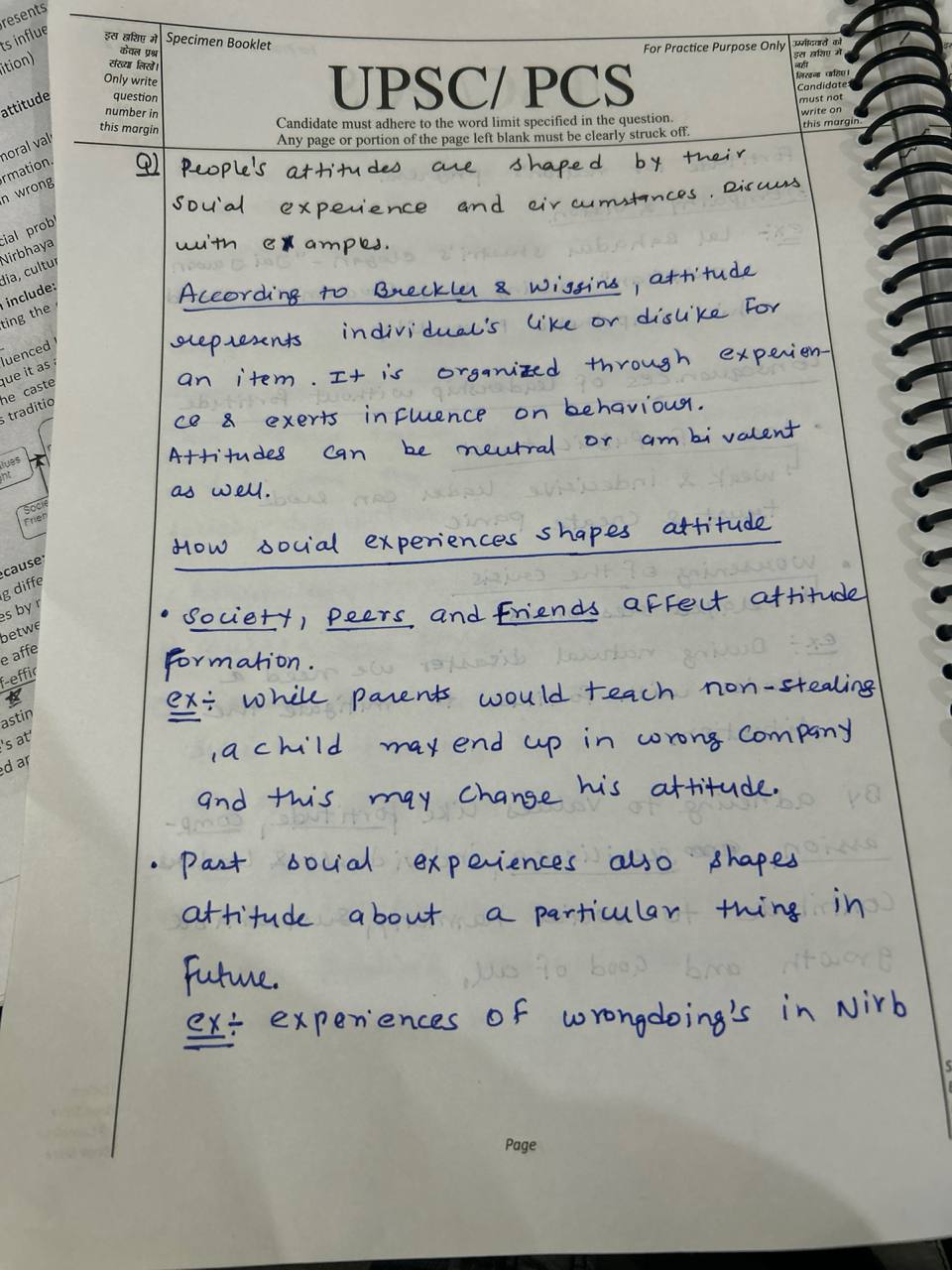Roadmap for Answer Writing Introduction Definition of Positive Attitude: Explain what a positive attitude is—characterized by optimism, constructive thinking, and hopefulness. Importance for Civil Servants: Highlight the necessity of a positive attitude for civil servants who work under extreme stress. A. Factors Contributing to ...
I strongly agree with the statement that action can serve as a catalyst for profound shifts in an individual's attitude. When people actively engage in behaviors or initiatives aligned with their goals or values, it often triggers transformative changes in how they perceive themselves and the worldRead more
I strongly agree with the statement that action can serve as a catalyst for profound shifts in an individual’s attitude. When people actively engage in behaviors or initiatives aligned with their goals or values, it often triggers transformative changes in how they perceive themselves and the world around them.
For instance, someone who starts a regular exercise regimen not only improves their physical health but also experiences a shift in attitude towards fitness, from seeing it as a chore to embracing it as a vital part of their lifestyle. Similarly, taking proactive steps in professional development, such as pursuing further education or challenging projects, can lead to increased confidence and a more ambitious outlook on career goals.
In relationships, actively practicing empathy and communication skills can foster deeper connections with others, transforming one’s attitude towards interpersonal interactions from passive to engaged and understanding. Even actions as simple as adopting environmentally-friendly practices can lead to a heightened sense of environmental responsibility and stewardship.
Ultimately, through action, individuals not only demonstrate commitment but also open themselves to new perspectives and possibilities. These shifts in attitude often result in more positive, purposeful, and fulfilling lives, driven by proactive engagement with their aspirations and values.
See less


Model Answer Introduction A positive attitude is defined as a mental and emotional state characterized by optimism and constructive thinking. It enables individuals to maintain hopefulness and a favorable outlook, even amidst challenges. This trait is especially crucial for civil servants who oftenRead more
Model Answer
Introduction
A positive attitude is defined as a mental and emotional state characterized by optimism and constructive thinking. It enables individuals to maintain hopefulness and a favorable outlook, even amidst challenges. This trait is especially crucial for civil servants who often operate under extreme stress.
Body
1. Self-awareness and Mindfulness
Understanding one’s emotions, values, and goals fosters a positive outlook. Mindfulness practices, such as meditation and yoga, have been shown to reduce stress and enhance emotional well-being. Research indicates that mindfulness can lead to increased resilience and lower levels of anxiety.
2. Resilience and Adaptability
The ability to bounce back from setbacks and adapt to new situations is vital for maintaining a positive attitude. Studies show that resilient individuals are more likely to view challenges as opportunities for growth, which helps sustain a constructive mindset.
3. Social Support and Teamwork
A supportive network of colleagues, mentors, and friends plays a significant role in fostering a positive attitude. Engaging in teamwork not only helps individuals feel connected but also motivates them to stay positive while working towards common goals.
4. Sense of Purpose and Fulfillment
Having a clear sense of purpose and feeling fulfilled in one’s work significantly contributes to a positive attitude. Research shows that individuals with a strong sense of purpose are more motivated and experience greater life satisfaction.
Indian Examples
Conclusion
A positive attitude is essential for civil servants to effectively serve the public and foster a constructive work environment. By cultivating self-awareness, resilience, social support, and a sense of purpose, individuals can maintain a positive attitude even in stressful circumstances.
See less